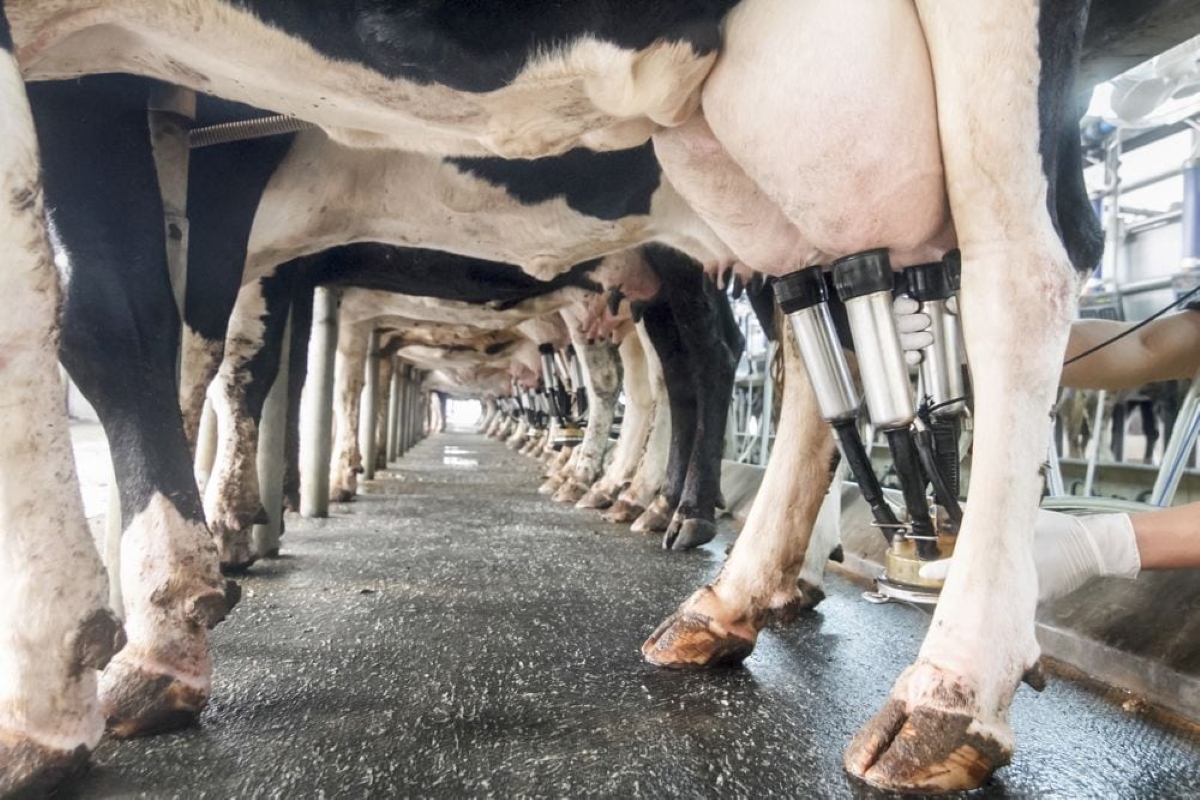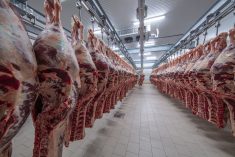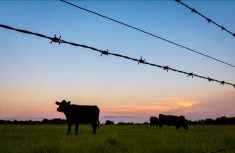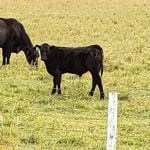Pfizer Animal Health has brought to market what it calls “the most current swine flu vaccine available in Canada.”
The company has launched FluSureXP, which it bills as providing “relevant, broad cross-protection against contemporary flu strains found in North America including strains from both H1N1 and H3N2 subtypes.”
Flusure XP, available through veterinarians, can be used on healthy swine, including pregnant sows and gilts, three weeks of age or older, but no closer than 21 days before slaughter, “as an aid in preventing respiratory disease caused by SIV (swine influenza virus) subtypes H1N1 and H3N2.”
Read Also

Nestle quits global alliance on reducing dairy methane emissions
Food group Nestle said on Wednesday it had withdrawn from a global alliance for cutting methane emissions that aims to reduce the impact of dairy farming on global warming.
The product includes the isolates A/Swine/North Carolina/031/05 (H1N1); A/Swine/Missouri/069/05 (H3N2); and A/Swine/Iowa/110600/00 (H1N1), and is expected to provide at least 10 weeks’ immunity to H3N2.
The three strains included were chosen on the basis of recent surveillance data and previous efficacy studies, according to Montreal-based Pfizer Animal Health Canada.
FluSure XP is also the first swine vaccine to be licensed under new Canadian Food Inspection Agency and U.S. Department of Agriculture guidelines designed to allow manufacturers to address vaccine updates more quickly, and meant to keep products “as current as possible,” Pfizer noted.
“In the last 10 years we’ve experienced very dramatic changes in the evolution of SIV, notably the emergence of new strains of the virus,” said Dr. Don McDermid of the swine veterinary services department at Pfizer Animal Health in the company’s release.
“The virus is like a moving target and that makes it extremely difficult for farmers to control. It challenges veterinarians and farmers to tailor vaccine protocols to deal with the complex mix of SIV in swine herds. Of course, it also means that current SIV vaccines may not be able to provide the coverage necessary for the changing mix of circulating viruses.”
The company said it has put together an interdisciplinary team to work with universities, diagnostic labs and customers to monitor trends in swine flu.
“Our intention is to continue to update the vaccine as the market demands, protecting herds from the most prevailing strains,” McDermid said. “Through our surveillance efforts, we are monitoring SIV trends to determine which strains are impacting the industry now as well as those that may become problematic in the future and require us to update the vaccine.”














